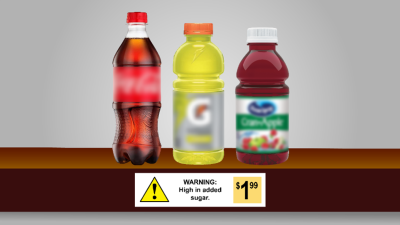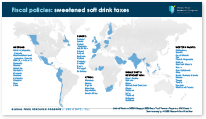
Researchers at UNC-Chapel Hill have found that combining taxes on sugary drinks with added messaging on price tags further discourages parents from wanting to buy sugary drinks for their children.
Currently, over 60 countries and smaller jurisdictions around the world have levied taxes on sugary drinks in an effort to curb their consumption, yet these beverages typically appear with a standard price tag displaying a tax-inclusive price and no additional messages or label requirements.
Researchers wondered how communicating either the price increase from the tax or the high sugar content on price tags might further empower healthy decision-making.
The study found that all types of enhanced price tags discouraged parents from wanting to buy sugary drinks for their children compared to the standard price tags. Messages about taxes on price tags could reduce purchases of unhealthy products, enabling more health benefits.
“Even though this policy hasn’t been implemented yet, public health lawyers think it should be legally feasible for policymakers to enact price tag requirements in conjunction with an excise tax on sugary drinks,” said Marissa Hall, PhD, assistant professor in Gillings School of Global Health’s Department of Health Behavior, Global Food Research Program faculty member, and study’s first author.
Read more about this research by Rachel Morrow at the Gillings School of Global Public Health news page.
Read the full article in the American Journal of Preventive Medicine online.
AUTHORS
Marissa Hall
Phoebe Ruggles
Katherine McNeel
Carmen Prestemon
Cristina Lee
Caitlin Lowery
Aline D’Angelo Campos
Lindsey Smith Taillie
Learn more about sugary drink taxes around the world.

